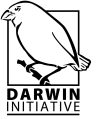COP 26 Event
At COP 26 in Glasgow in November, the GBS was announced at a special event at the Hidden Gardens co-hosted by Plan Vivo and Ecosia. The announcement of the Standard received endorsements from key figures such as Elizabeth Maruma Mrema, Executive Secretary of the Convention on Biological Diversity; Baroness Joan Walmsley, UK House of Lords Science and Technology Committee, and; Zac Goldsmith – UK Minister for International Climate and Environment.
Work with Partners
As our first corporate sponsor, Etihad Airlines, has been supporting the GBS development phase as well as its announcement at COP 26.
We are continuing to work with our partners, the Society for Ecological Restoration (SER), the World Agroforestry Centre (ICRAF), TRAFFIC, Ecosia, Plan Vivo and 1t.org to develop the GBS methodology and to begin testing on the ground in restoration sites. Consultations have also taken place with Space Intelligence, Nature Metrics, Gold Standard, Ambatotsirongorongo, Royal Botanic Gardens, Kew and Restor. We have begun initial remote sensing activities to develop the methodology, working with Kew and Huarango Nature in Peru and Brazil, and Space Intelligence in Sumatra.
Terraformation will also be working alongside the GBS to develop seedbanks in at least four of our restoration hub sites.
Together with ICRAF a joint funding application to the International Climate Initiative is through to Stage 2, which would bring matched funding to support capacity building and biodiversity infrastructures in four African countries.
Darwin Extra Proposal
Recently a proposal was submitted to the Darwin Extra fund to support the development of the Global Biodiversity Standard, specifically to:
- Develop a scientifically credible, objective, accessible Global Biodiversity Standard and certification methodology
- Create hubs of expertise and data to support GBS assessments and forest restoration mentorship in at least 6 highly biodiverse countries
- Develop a self-sustaining business model and plan for scaling up the GBS
- Promote the GBS certification as a due diligence requirement, adopted and used by policymakers, financiers and practitioners of tree-planting, reforestation and forest restoration
- If successful, we will begin rolling out testing of the methodology in April with partners in our initial six hub countries; Kenya, Uganda, Madagascar, India, Peru and Brazil. Following this, methodology will be made public through an online application available in English, French, Portuguese and Spanish.
Outreach and Communications
You can find our newly launched website where we have already received keen interest from numerous organisations. Through working with PLMR, we have developed our brand and logo.
The
most recent issue of BG Journal is focused on the GBS and outlines key challenges and opportunities as well as being an opportunity to announce the standard to the wider Botanic Garden community.
We are also keen to highlight good and bad restoration projects and so would be interested to hear from any that you have come across. If you have any examples that you would like to share, please let us know.
New staff
Last but not least, Galena Woodhouse has started as the GBS Project Manager. Please
contact her with any questions and expressions of interest in the Standard.


